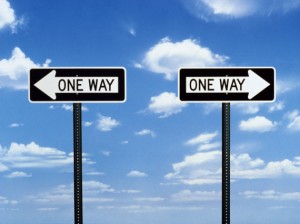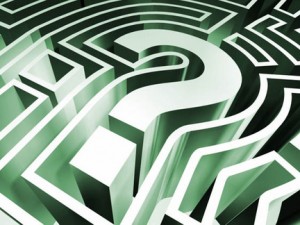As discussed in the previous posts, everything in the finite points to the all-encompassing and all-inclusive Infinite Being that we refer to as God. And, being Infinite, there is nothing that God “gains” or “loses” by anything we do. Meaning, there is no change in God’s essence if we act in one manner as opposed to another manner. Having explored this issue, we then turned to the human being to see what he can gain from the presence and awareness of the Infinite Being, and we found that the inner drive of every member of humanity is to get the most pleasure, joy, and happiness out of life. If we take a look around the world, it is clear that, while many pleasures are available – i.e., sex, drugs, rock n’ roll – all these pleasures are within the limited finite bounds of time and space. Thus, if the human being wants the ultimate, there is only one address for it – the Infinite, that which is beyond the finite.
It comes out, then, that life is all about building and facilitating a relationship, association, and affiliation with the Infinite Being. As we explained, in order to do that to the greatest extent possible, there needs to be the real opportunity to choose the relationship, which means the real opportunity to destroy it as well.
That is to say, a person transitions from the intrinsically stable Parent relationship being the primary relationship in his life to the intrinsically delicate Spousal relationship being the primary relationship in his life due to the heightened refined state of the Spousal relationship brought on by the real independence present in his choices in that relationship.
The same principle applies in one’s relationship with the Infinite.
In order that the human being have the capacity and independence to build and facilitate that higher Spouse-like relationship with God, he must have the capacity to destroy that higher Spouse-like relationship with God.
This is the necessity for Free Will in Judaism.
But before we get to a discussion of Free Will, we should point out that if we follow the line of reasoning we have just laid out, we have in effect already built the framework by which we can define the terms “Good” and “Evil.” After all, if we are here to get the most pleasure, joy, and happiness out of life, and the way to do this is to build and facilitate a relationship, association, and affiliation with the Infinite Being, then Good is that which brings me closer to the Infinite, and Evil is that which pulls me away from the Infinite.
Now, it is important to digest this.
In Western culture, when a person hears the word “Good,” he thinks well-mannered, comfortable, enjoyable, nice, tasty, entertaining. And when a Westerner hears the word “Evil,” he thinks murder, rape, abuse, theft. But, for the purpose of these posts (as well as the rest of life), we have to change the way we look at and understand these terms. We have to shift our Good-Evil paradigm.
So, again, according to everything we have outlined already, Good is that which brings me closer to the Infinite, and Evil is that which pulls me away from the Infinite.
Internalize this and we will begin our journey into the topic on Free Will next week…
Rabbi Eliyahu Yaakov is a sought after cutting edge international speaker on Kabbalah, relationships, parenting, and life. His recently released #1 Amazon’s Best Seller, Jewish By Choice: A Kabbalistic Take on Life & Judaism, has won wide acclaim as one of the clearest, most comprehensive, easily accessible, and practical depictions of Kabbalah and the “whys” of Judaism.


